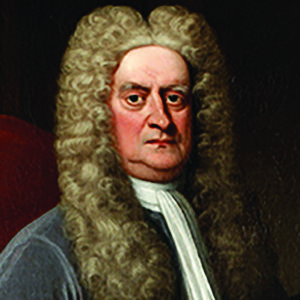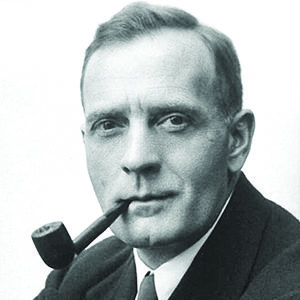What is the INTJ Personality?
The INTJ has a mind for complex and abstract thought. They develop models that explain the abstract and that model physical reality, thus creating structures that are applicable to business, science and technology. They can be seen in disproportionate numbers in science, mathematical fields, research and development and computer science.
INTJ’s observe the complexity of the physical world and are adept at seeing patterns and how they fit into other patterns.
 Sir Isaac Newton (1642 – 1727) was one of the most significant scientists of all times. His discoveries form the basics of classic Newtonian physics, establishing the fundamental laws of the universe as they were understood in his time. Newton exhibited the characteristics of an INTJ. His brilliance sought the hand of God in the predictable laws of the universe. It was a model that could be understood universally.
Sir Isaac Newton (1642 – 1727) was one of the most significant scientists of all times. His discoveries form the basics of classic Newtonian physics, establishing the fundamental laws of the universe as they were understood in his time. Newton exhibited the characteristics of an INTJ. His brilliance sought the hand of God in the predictable laws of the universe. It was a model that could be understood universally.
INTJ’s value knowledge and often have formidable minds which they like to apply to achieve practical outcomes. From this process they identify the relevant models and create ways to give them future practical application.
They are efficient and appreciate the simplicity of an elegant theory that explains hugely complicated ideas. They are confident in their ideas and trust them over the ideas of others. If there is disagreement with many opinions, INTJ’s are sure that they alone can be correct. The primary function that directs the INTJ is his or her Intuition. They search for a central insight onto which they add logical analysis and data.
INTJ’s want to be sure that their process is efficient and that they begin with the “right questions,” knowing then and only then that their answers will be right. INTJ’s have a reputation for getting practical results in the implementation of their ideas and do not want to be seen as “ivory tower” thinkers, though in many cases people may assume them to be that. They can be quite tough, practical, and relentless in bringing practical ideas into use.
They work to be concise; as one INTJ told us, the best email is one word: “Yes” or “no.”
INTJ’s as Team Members
INTJ’s are often team “power players.” At the same time, they most often are a power unto themselves. They will often have more subject knowledge on the issue at hand than others. Their ability to apply thought to implementation often make them invaluable. INTJ’s often rise to high positions because of their long-range planning ability.
 Edwin Hubble (1889-1953), an INTJ type, was an astronomer who saw previously unseen patterns in the universe. He discovered the galaxies moving away from each other. By calculating their speed, he reasoned that they came from a single point. He and others discovered the “Big Bang,” the beginning of time as we know it.
Edwin Hubble (1889-1953), an INTJ type, was an astronomer who saw previously unseen patterns in the universe. He discovered the galaxies moving away from each other. By calculating their speed, he reasoned that they came from a single point. He and others discovered the “Big Bang,” the beginning of time as we know it.
INTJ’s can sometimes be seen in groups as unbending, although they often don’t see themselves as unwilling to change.
They simply want data that would convince them to change their minds. People can find INTJ’s to be frustrating in that they can be quite compelling and charming in presentations, but at the same time seem aloof and difficult to know in social conversations. They can seem to always be keeping a bit of themselves deep inside that is not displayed to those around them.
What Are INTJ Issues and Challenges in Groups/Best Alliances?
INTJ’s can appear “Spock-like”—logical, intriguing and distant. INTJ’s do well to ally themselves with those personality types who tend to convince through gaining the support of others.
The INTJ will do well to ally himself or herself with those who are more sensitive to the political realities of the workplace, as well as to team dynamics and interpersonal relations. In this way they can ally themselves with those who will not just be convinced by logic and data.
INTJ’s and the Rest of Their Lives
INTJ’s are fascinating conversationalists to those who are in their inner circle. They can be great lecturers on complex and unknown topics and delight in explaining the difficult to explain. They are intensely loyal to family and friends and are protective of others in relationships. Their need for economy and efficiency of speech can be quite frustrating to some. This is one of the reasons they are seen as hard to know. Those in relationships with INTJ’s will need to “give them space,” realizing that they must have distance to think and analyze.
INTJ Fast Facts
THUMBNAIL
INTJ’s are probably the most conceptual of the MBTI types, and most often one of the most brainy. They find abstract models they use explain physical reality. They do not so much create concepts, but apply them. They look for simple and elegant models and they apply them in as much as it proves the model. At the personal level they form committed relationships with family.
THREATS
INTJ’s are often seen as aloof and minimalist in their willingness to communicate. They can tire of people who can’t follow their thoughts quickly. Outcome for outcome’s sake usually doesn’t appeal to them except that it allows an intellectual environment.
PERCENTAGE OF POPULATION
A very small MBTI group, INTJ’s are 2.1%, or about 2 people in a hundred.
COMMON CAREER TRACKS
INTJ’s can be seen in disproportionate numbers in science, mathematical fields, research and development and computer science.

Austin, Texas
Santa Fe, New Mexico
Carol Kallendorf, PhD. | (512) 417-9756
Jack Speer | (512) 417-9428
We value your comments. Please let us know of any suggestions you have for this website, or for technical problems please email jspeer@delta-associates.com.
All contents Copyright © 2010-2023 The Delta Associates. All rights reserved.
Myers-Briggs Type Indicator® MBTI®, is a registered CPP, Inc. FIRO-B™ and CPI 260™ are trademarks of CPP, Inc.
The Delta Associates 360-Degree Assessment™ is a trademark of The Delta Associates.


















